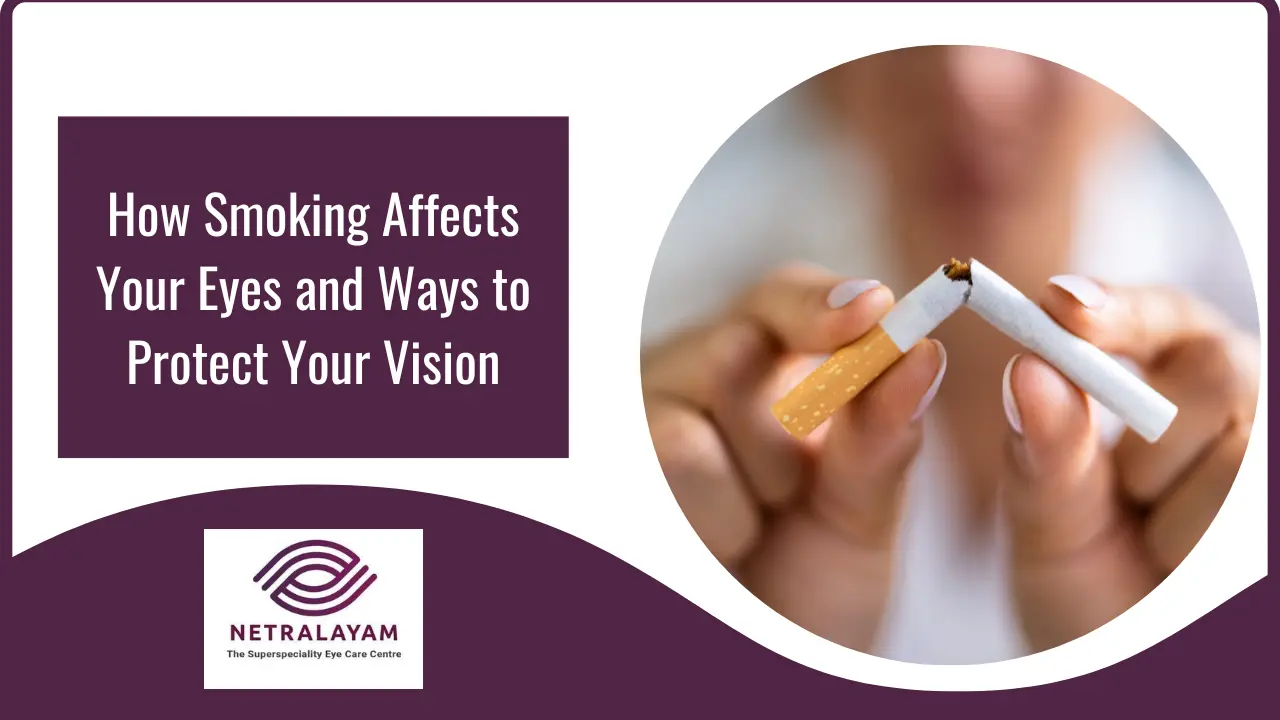Committed to Eye Care with Compassion, Technology and Competency
Committed to Eye Care with Compassion, Technology and Competency

7/14/2025
Smoking is widely known for its damaging effects on the lungs, heart, and overall health. However, what many people overlook is the impact it has on eye health and vision. Your eyes, like every other organ, depend on a healthy circulatory system and oxygen supply to function properly. When you smoke, you're not just putting your general health at risk, you're also jeopardizing your ability to see clearly.
Let’s explore how smoking affects your eyes, the symptoms to watch out for, and what steps you can take to protect your vision.
Smoking contributes to various vision problems and increases the risk of several serious eye diseases. Here are some of the major ways smoking can damage your eyes and impact your sight:
Nicotine constricts blood vessels throughout the body, including those that nourish your eyes. When the blood flow is restricted:
This vascular constriction weakens the eye’s ability to repair itself and increases vulnerability to other eye diseases.
Smoking contributes to a range of serious eye conditions:
The optic nerve carries visual signals from your eyes to your brain. Long-term smoking can cause optic neuropathy, which may result in:
This damage can be permanent, especially if left untreated.
If you're a smoker, be alert for the following symptoms:
These symptoms may indicate early signs of smoking-related damage and should be evaluated by an eye care professional immediately.
The best step you can take for your eyes and your overall health is to quit smoking. Here's why:
Need help quitting? Consider nicotine replacement therapies, counseling, support groups, or digital health apps that provide personalized support. Consult with your doctor or eye care specialist to learn about the resources available to you.
Early detection is vital for preserving your vision.
Support your vision with simple lifestyle changes:
If you have conditions like diabetes, high blood pressure, or high cholesterol, managing them is crucial to lowering your risk of vision complications. Work with your healthcare provider to monitor your general health and reduce the strain on your eyes.
Don’t wait for a routine appointment if you experience:
An ophthalmologist can diagnose and treat smoking-related eye damage using advanced diagnostic tools and treatment plans tailored to your needs.
Smoking restricts blood flow to the eyes, damages the retina and optic nerve, and raises the risk of cataracts, macular degeneration, dry eye, and diabetic retinopathy. Symptoms like blurred vision, fading colors, or eye irritation can signal early damage. Quitting smoking, scheduling regular retinal screenings, wearing UV-protective eyewear, eating nutrient-rich foods, and managing chronic conditions are key steps to preserving your long-term vision.
Smoking can quietly harm your eyes over time, but timely checkups can make all the difference. At Netralayam, we offer expert care to detect early signs of damage and help you keep your vision clear.
Book your appointment today and take a step toward healthier eyes.
Comments are closed
